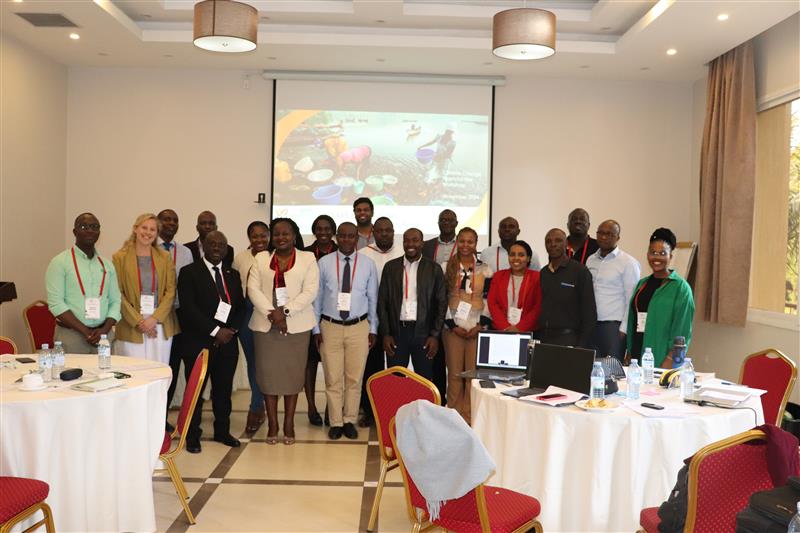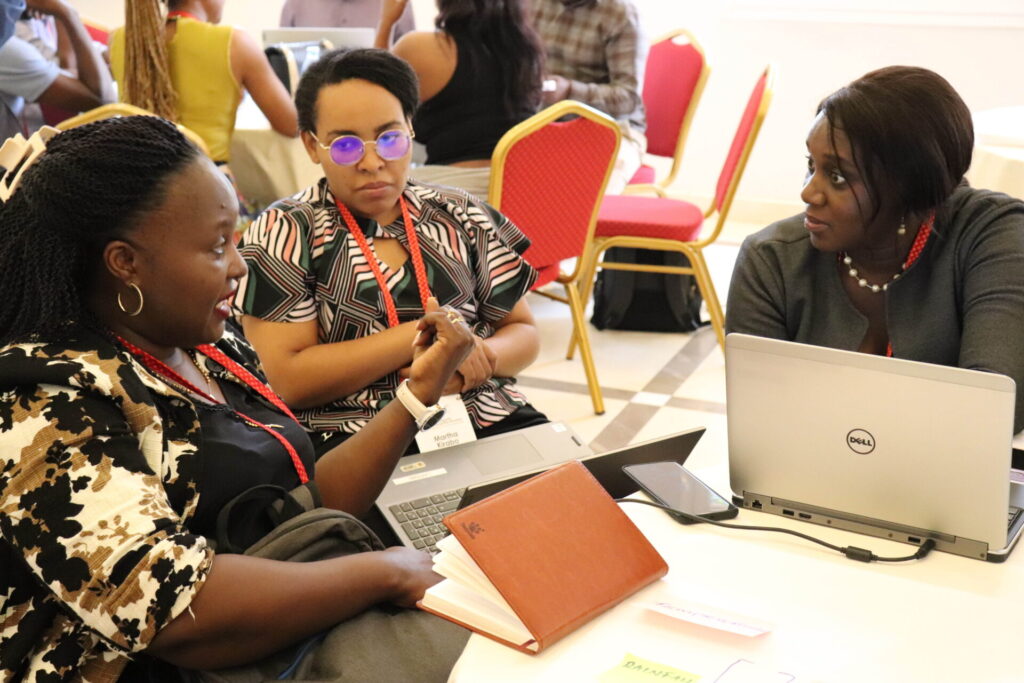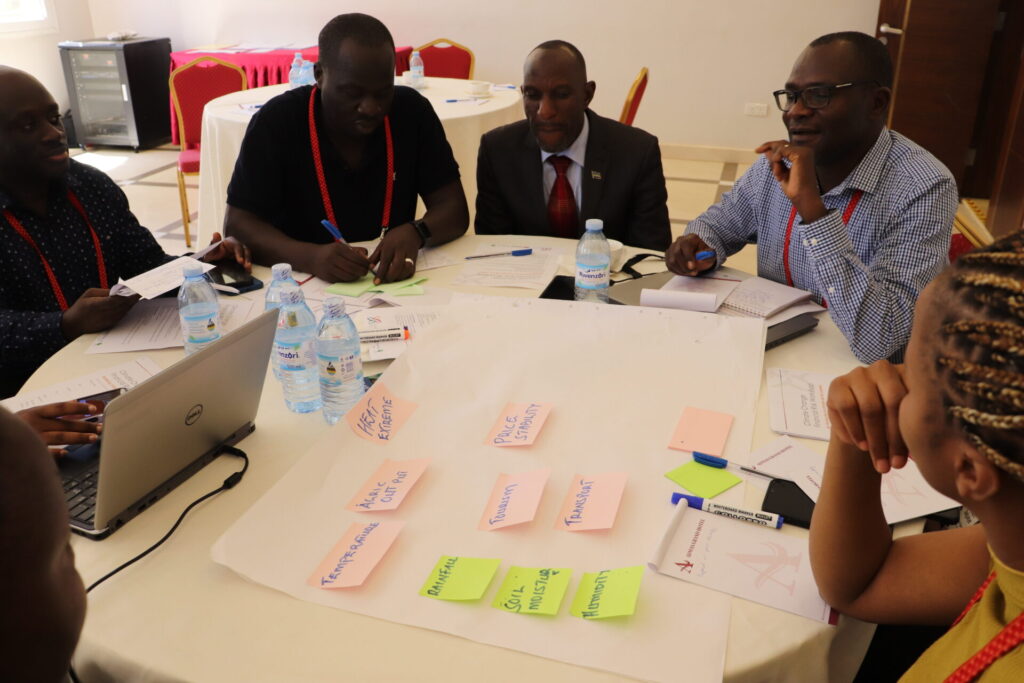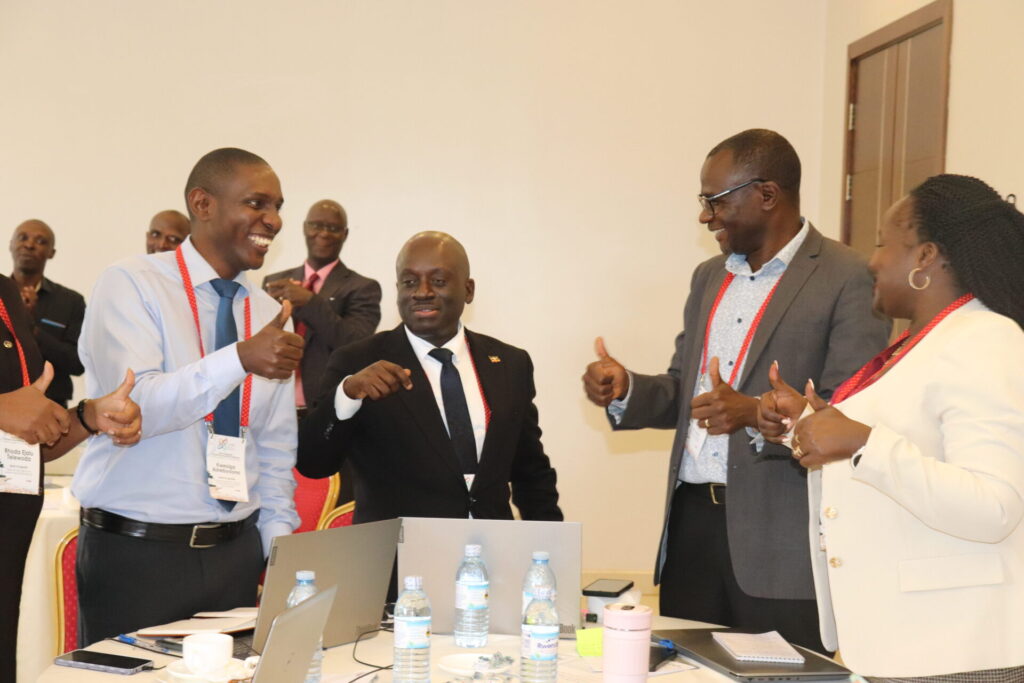
Bridging Knowledge Gaps on Climate Change Financial Risks with the Central Bank of Uganda
/
By: Grace O’Donovan and Afika Ndlela
This blog provides a summary of the key outcomes of a CLARE R4I Opportunities Fund project that culminated in a two-day workshop in Uganda on climate risks for the financial sector, at the invitation of the Central Bank of Uganda. Reflecting the CLARE programme’s foundational themes of understanding climate risks, risk-informed early action, and developing in a changing climate, the R4I Opportunities Fund was able to offer a crucial first-step in supporting Uganda’s long-term economic development, as well as fostering strategic multi-sectoral alliances that are integral for bridging knowledge gaps, supporting adaptive capacity, and ensuring long-lasting climate resilience.

The role of Central Banks in the climate crisis
Central banks are powerful institutions that influence resource allocation and the behaviour of the financial sector. While financial regulations and central banking has historically remained within the purview of fiscal policy, the intersection between the climate crisis and finance has highlighted the critical role they now play in driving adaptive responses. A green economy transition, linked to greenhouse gas emission mitigation strategies and global temperature reduction objectives is increasingly falling within the mandate of the financial sector. Consequently, it has become important for central banks to be well-equipped to assess and support climate transitions through green investments, risk management and robust regulatory frameworks. As climate-related risks continue to rise, ensuring financial stability will require increased integration and consideration of extreme weather events and the broader economic impacts of climate change. Towards a coordinated global response, central banks and financial regulators have become a key player in aligning financial systems with climate commitments and policies.
As a result, in 2017, a call for action was made at a meeting of central bankers and supervisors under the Network of Central Banks and Supervisors for Greening the Financial System (NGFS), highlighting the need to build an understanding of climate-related risks and ensure that financial systems are resilient to climate risks.
Responding proactively to this call, the Central Bank of Uganda (BoU) has adopted a climate change risk policy that sought to integrate climate risks into the design and deployment of its supervisory, micro-prudential and macro-prudential monetary tools, and implementation frameworks. However, during this process, bottlenecks emerged due to the lack of access to climate risk data that could be easily incorporated into financial models, as well as knowledge gaps in how to use climate data to undertake climate financial risk analyses.
Exploring climate risks for Central Banks
The FCDO-IDRC funded CLimate Adaptation and REsilience (CLARE) Research for Impact (R4I) Opportunities Fund helped the BoU to bridge the gap between climate science and financial risk planning. Support was provided for an initial exploration of needs between the bank’s senior decision makers, local climate scientists and economists. The knowledge gaps identified between climate science and economics speaks to the need for a multi-sectoral approach in tackling the climate crisis, and integrative collaboration efforts in bringing diverse knowledges together towards a joint objective.
The Opportunities Fund’s responsive approach to in-country needs aimed to provide the bank with an essential first-step to improve understanding of how the financial and climate science sectors are integrated, offer increased incentives for the bank to engage in country-wide sustainability practices, and highlight the importance of allocating the bank’s capital towards ‘green’ assets.
An initial virtual session was held in October 2024 for senior decision-makers, economists and researchers from the BoU, providing a tailored approach to understanding Uganda’s climate risks (such as flooding, drought, and extreme heat), the importance of building central banks’ internal capacity to conduct physical climate risk assessments, and how to access and interpret relevant climate data sources and models. After a collaborative and participatory session, an in-person, two-day workshop took place in November 2024 in Entebbe, Uganda.

New networks and tailored capacity strengthening
The event fostered collaboration between climate scientists and economists, providing participants with the necessary tools to assess climate-related financial risks, in alignment with the BoU’s policies and national climate goals.
The event brought together key professionals from Uganda’s climate and financial sectors, including the BoU’s Director of Statistics, officials from the Supervised Financial Institution’s (SFI) Supervision Department, the Climate Change Department, the Ugandan National Meteorological Authority (UNMA), and Climate Action Network Uganda. Their participation ensured a collaborative and integrative approach towards addressing climate-related financial risks.
The workshop also brought together technical experts in climate finance, each contributing valuable knowledge to help integrate climate risks into Uganda’s financial systems: Kamleshan Pillay, of Adaptive Management and Finance, facilitated discussions on the role of financial institutions in addressing climate-related risks; Theresa Mazarire, a PhD candidate at the University of the Witwatersrand specialising in Geographic Information Systems (GIS), focused on using data sources and climate projections for climate risk assessments; and Eddie Jjemba, an Urban Resilience Advisor at the Red Cross Red Crescent Climate Centre, guided participants through interactive learning sessions.
Each central bank department also had the opportunity to receive tailored expertise that would guide their focus of work – whether in research or statistics, to name a few – towards meeting the bank’s climate risk goals. This specific approach aimed to enhance the BoU’s risk analysis capability and their capacity to develop a climate risk implementation plan, equipping them with the appropriate tools and methodologies to identify, quantify and mitigate climate risks. Integral to the principles of knowledge exchange, lessons learned and cross-departmental expertise were also shared, offering a reminder that diverse knowledges are not limited to different sectors, but that opportunities for collaboration and co-created strategies within institutions and organisations themselves are also critical.

Looking ahead
The workshop marked a key milestone in Uganda’s efforts to integrate climate change into its financial and policy frameworks. By strengthening the BoU’s ability to assess and manage climate risks, it paves the way for more resilient and sustainable financial practices that will drive long-lasting and sustainable national adaptation actions. As climate-related financial risks grow, responsive initiatives that can bridge critical knowledge gaps are essential for preparing central banks and financial institutions worldwide for the climate challenges that lie ahead. Towards this, one of the workshop’s most significant outcomes took shape in the strategic commitments made to maintain further opportunities for knowledge exchange, information sharing, and collaboration between the key stakeholders represented. Participants also highlighted the usefulness of this support, noting that the event had provided clarity on important sources of climate data both within and outside of Uganda, offered a more comprehensive understanding of climate risks, and showcased the possible methodologies for analysing these risks. By fostering collaboration between climate scientists, economists, and financial experts, Uganda is taking proactive steps to protect its financial system, adapt to transitional shifts, and build resilience against climate challenges.
Learn More About the Opportunities Fund
To find out more about how the CLARE R4I Opportunities Fund is driving the uptake of existing research for impact that supports needs identified by decision-makers in Africa and Asia-Pacific, visit our webpage.

